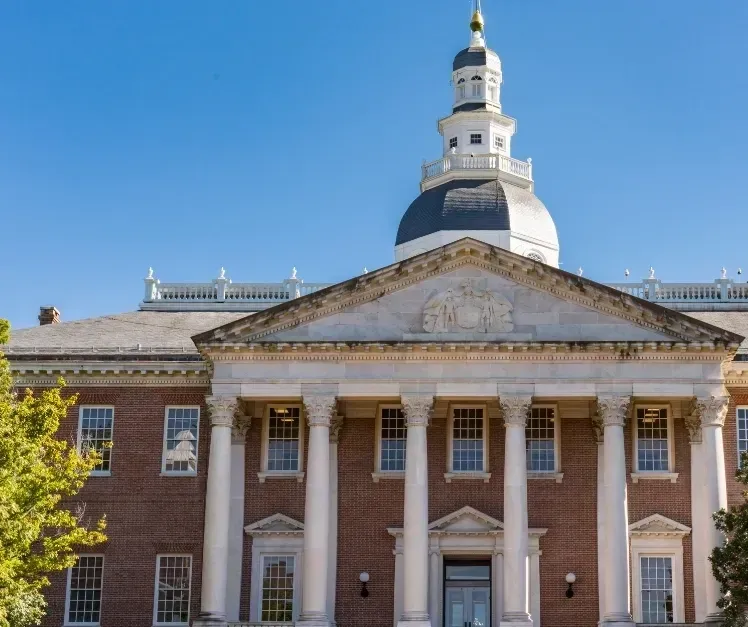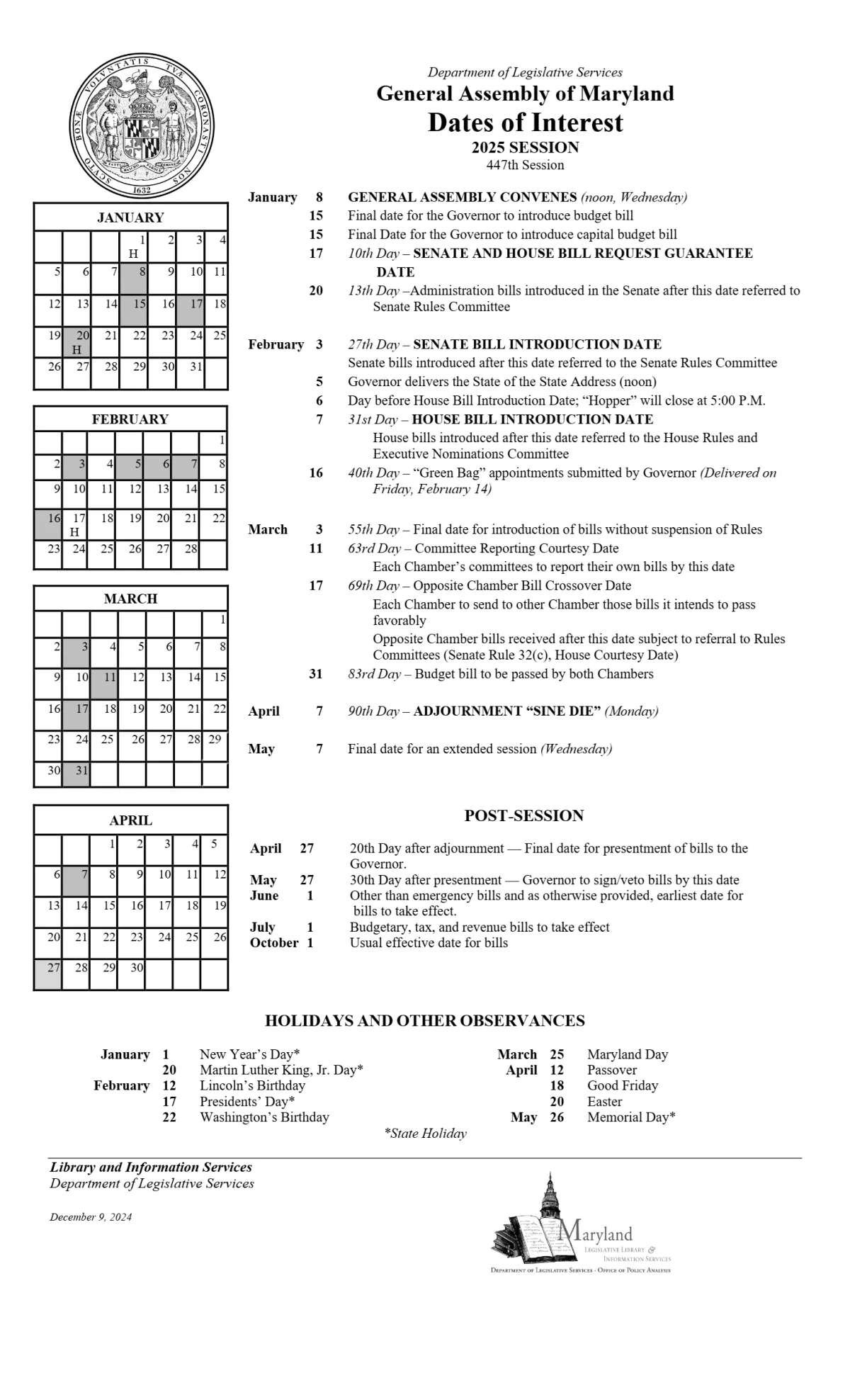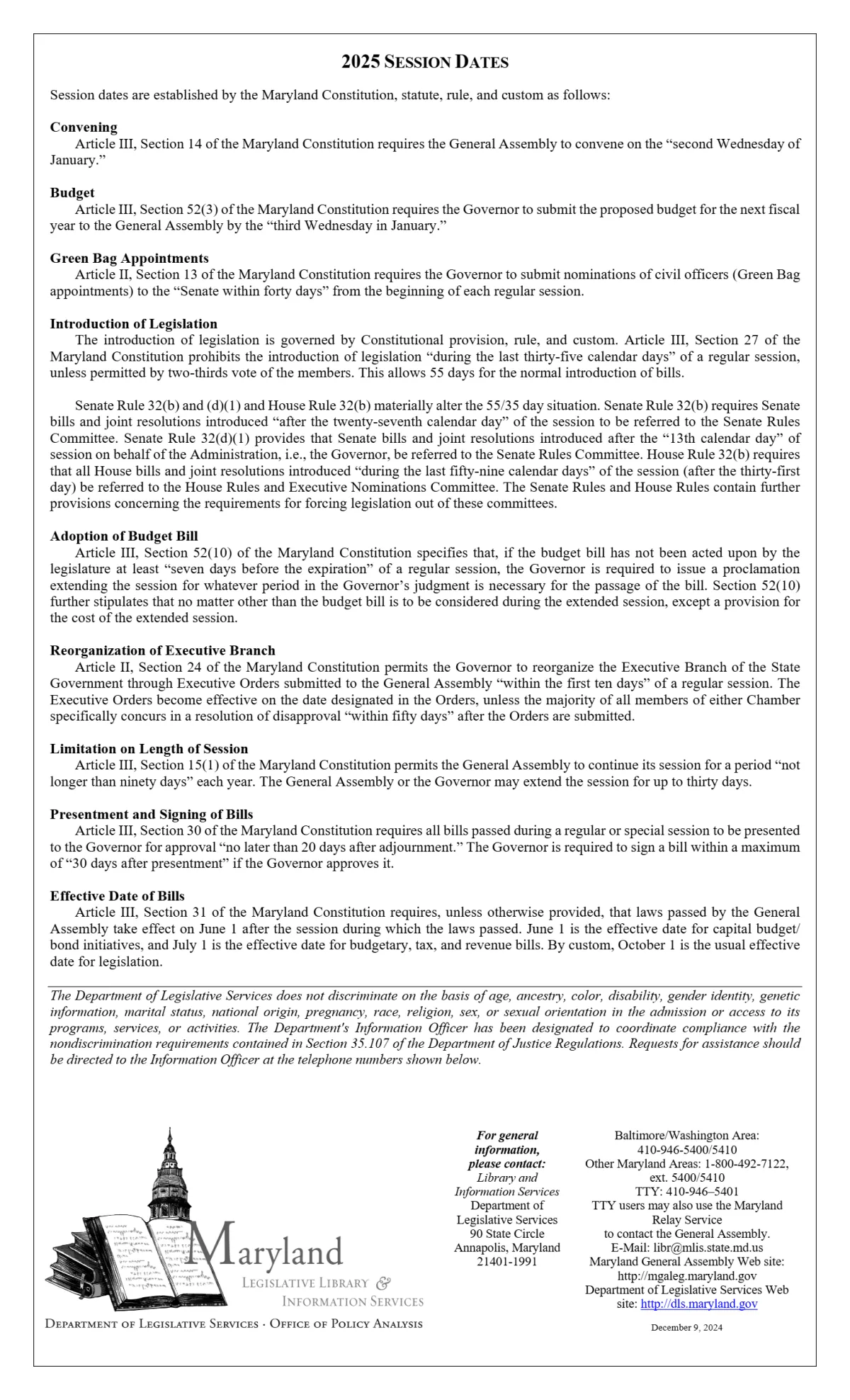Maryland General Assembly
About
The Maryland General Assembly meets annually for a 90-day session, beginning in January and concluding in April. During this period, legislators introduce, debate, and vote on bills that could affect notarial practices. Understanding the timeline of this session is crucial for notaries who want to stay ahead of legislative changes. The session starts in January, with pre-filing of bills occurring in December and the deadline for bill proposals set at the end of January. As bills progress through the legislative process, they reach critical points such as committee hearings, which typically take place from February to March. These hearings are essential opportunities for notaries to provide input and influence proposed legislation.
Mid-March marks the crossover deadline, the date by which bills must pass one chamber (House or Senate) to move to the other. This is a key milestone for tracking the progress of relevant legislation. The session wraps up in early April, a period often marked by a flurry of legislative activity as lawmakers work to pass remaining bills and resolutions. Following the session's conclusion, attention shifts to the Governor, who signs bills into law from April through May. Monitoring these signing dates is crucial for notaries to understand when new laws will take effect and how they might impact their work.
Maryland General Assembly
About
The Maryland General Assembly meets annually for a 90-day session, beginning in January and concluding in April. During this period, legislators introduce, debate, and vote on bills that could affect notarial practices. Understanding the timeline of this session is crucial for notaries who want to stay ahead of legislative changes. The session starts in January, with pre-filing of bills occurring in December and the deadline for bill proposals set at the end of January. As bills progress through the legislative process, they reach critical points such as committee hearings, which typically take place from February to March. These hearings are essential opportunities for notaries to provide input and influence proposed legislation.
Mid-March marks the crossover deadline, the date by which bills must pass one chamber (House or Senate) to move to the other. This is a key milestone for tracking the progress of relevant legislation. The session wraps up in early April, a period often marked by a flurry of legislative activity as lawmakers work to pass remaining bills and resolutions. Following the session's conclusion, attention shifts to the Governor, who signs bills into law from April through May. Monitoring these signing dates is crucial for notaries to understand when new laws will take effect and how they might impact their work.

PDF Viewer
2025 Session General Assembly of Maryland Dates of Interest
To keep you informed and engaged, we offer legislative alerts, updates on relevant bills and hearings, and
opportunities to participate in advocacy efforts. By subscribing to our newsletter, you can stay abreast
of legislative changes and ensure your voice is heard. Consider joining our advocacy initiatives, such as
letter-writing campaigns, attending hearings, and meeting with legislators to represent notarial interests.
In addition to these resources, we provide educational workshops to help you navigate the legislative
process and advocate effectively for beneficial changes.
At Maryland Notaries In Action, we are committed to equipping you with the knowledge and tools you
need to thrive in your profession amidst evolving legal landscapes. Stay informed, stay proactive, and join
us in shaping the future of notarial practices in Maryland.

